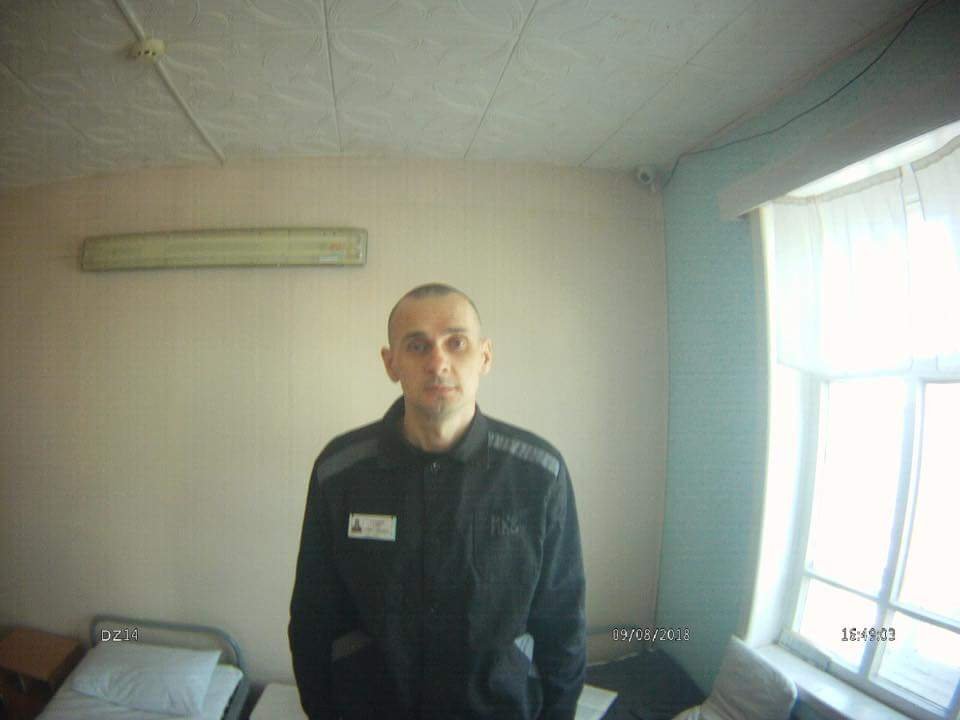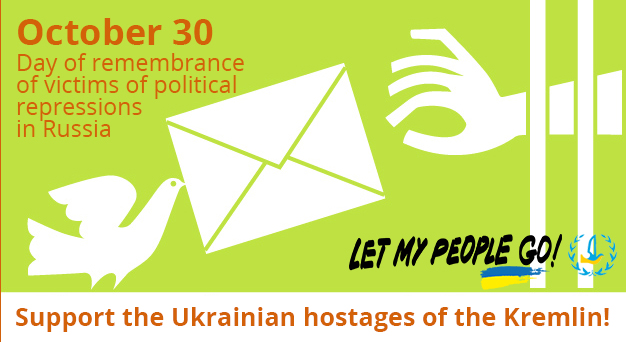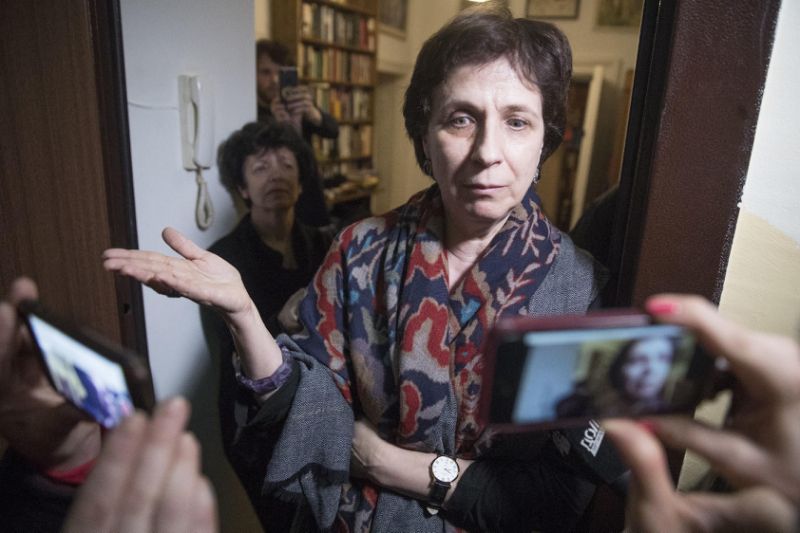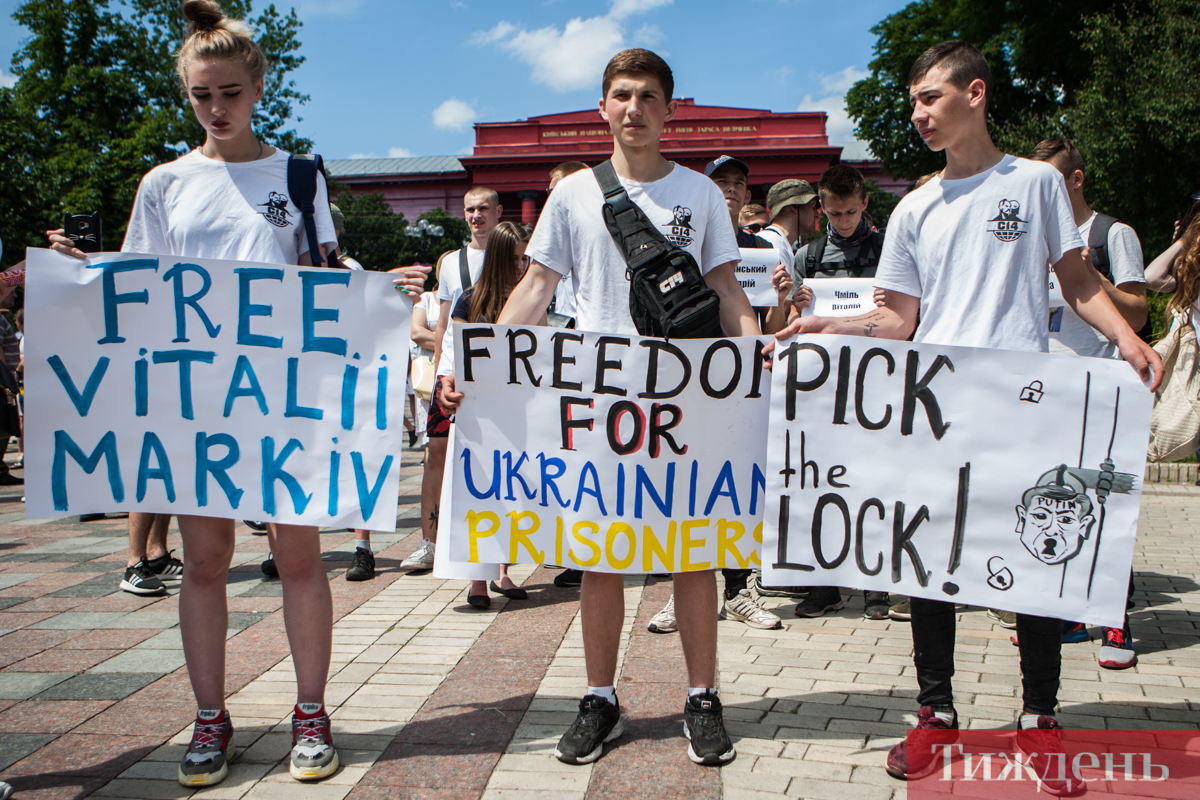Mykola Karpiuk and Stanislav Klykhh joined the long list of Kremlin’s Ukrainian political prisoners in March and August 2014, respectively. Unlike Nadiya Savchenko or Oleh Sentsov, the newer prisoners are being accused of events that happened 20 years ago, during the wars in Chechnya. Karpiuk and Klykh were denied lawyers or Ukrainian consul access for months, while their arrest is a mystery in itself, the former abducted from Ukraine and brought into Russian hands by unknown perpetrators.
Kremlin’s likely motive in this show trial is a “public execution” as a revenge to all members of UNA-UNSO, a Ukrainian nationalist organization known for fighting Russia’s troops in numerous post-Soviet conflicts, as well as Ukrainian nationalist as a whole.
Stanislav Klykh’s lawyer, Marina Dubrovina, spoke to Ukraine’s Center for Civil Liberties on his case. The trial itself, Dubrovina believes, could start as early as September 15 in Chechnya’s higher court in Grozny. The prisoners spent the months awaiting trial in various Caucasus jails. She only managed to meet Stanislav 10 months after his arrest.
Dubrovina says Stanislav had been tortured for two months since his arrest in September 2014. Various tortures, including hunger, electric shocks and drugs, lead to him losing over 15 kilos and developing asiderotic anemia. Despite his medical condition, prison doctors have delared him fit for trial.
Stanislav Klykh has denied all the allegations against him. He never took up arms, Dubrovina says, and even couldn’t tell the caliber of a Kalashnikov when forced to confess under torture of shooting Russian prisoners. He has officially reported being tortured to Russian law enforcement, yet Dubrovina believes his torturers will be left unpunished. The torturers put a bag over Stanislav’s head, meaning he won’t be able to identify them.
All Russia’s evidence against Stanislav is based on a statement of a Ukrainian citizen Oleksandr Malofeiev, whom Dubrovina was denied meeting with. Malofeiev, who allegedly was caught on tape fighting in Chechnya, was sentenced for 23 years in prison in 2009 for crimes he commited in Russia in 2008. Malofeiev, who has AIDS, hepatitis and opiates addiction, “identified” both Mykola Karpiuk and Stanislav Klykh. Another witness, who shared a cell with Klykh in 2014, allegedly told the investigators Stanislav “confessed” his crimes to him while in jail (after refusing to tell anything under torture).
According to Marina Dubrovina, all “incriminating” testimonies of the prosoners were given under torture, while the materials she claims to have obtained prove that Stanislav Klykh was not in Chechnya when he allegedly committed his crimes.
Among the 15 Russian soldiers, allegedly wounded by Karpiuk and Klykh (in addition to 20 killed), none identified them (while identifying Oleksandr Muzychko, a Ukrainian nationalist who did fight in Chechnya). Despite that, both face from 15 years to life in prison. Dubrovina hopes the court would be open for press, because under Russian law it would be hard to make it closed.
While Karpiuk did fight against Russians in Abkhazia (not in Chechnya), Stanislav Klykh, according to Dubrovina, was just another UNA-UNSO activist Kremlin could reach. While all key Ukrainian nationalists have been issued arrest warrants in Russia, Klykh and Karpiuk will probably be held responsible for them all. Dubrovina believes the case to be political and little to do with law, especially since it's being held in Ramzan Kadyrov’s Chechnya
.
Marina Dubrovina believes both Karpiuk and Klykh need support from their home country and Ukrainian consulate workers being present in court. Both cases, according to the lawyer, have potential to be appealed in the European Court for Human Rights. The families also do need help, including lawyer costs. Most importantly, the prisoners should never feel forgotten, like Stanislav who, after spending 10 months without even a lawyers, believed everyone had forsaken him.





